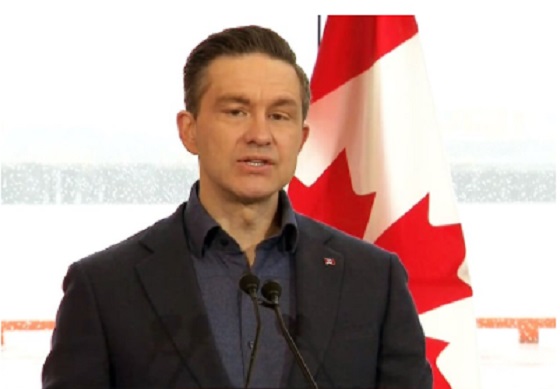Education
Parents should oppose any plans to replace the ABCs with vague terminology in schools

From the Fraser Institute
According to a recent poll, the vast majority of parents in Canada easily understand letter grades on report cards but are confused by the nouveau “descriptive” grading adopted in British Columbia. This should serve as a warning to any province or school board thinking about adopting this type of convoluted descriptive grading.
In September 2023, despite overwhelming opposition from British Columbians, the B.C. government replaced letter grades—such as A, B, C, D, etc.—on K-9 report cards with a “proficiency scale,” which includes the descriptive terms “emerging,” “developing,” “proficient” and “extending.” If these four terms seem confusing to you, you’re not alone.
According to the recent poll (conducted by Leger and commissioned by the Fraser Institute), 93 per cent of Canadian parents from coast to coast said the letter grade “A” was “clear and easy” to understand while 83 per cent said the letter grade “C” was “clear and easy” to understand. (For the sake of brevity, the poll only asked respondents about these two letter grades.)
By contrast, 58 per cent of Canadian parents said the descriptive grade “extending” was “unclear and difficult” to understand and only 26 per cent could correctly identify what “extending” means on a report card.
It was a similar story for the descriptive grade “emerging,” as 57 per cent of Canadian parents said the term was “unclear and difficult” to understand and only 28 per cent could correctly identify what “emerging” means on a report card.
It’s also worth noting that the poll simplified the definitions of the four “descriptive” grading terms. The B.C. government’s official definitions, which can be found on the government’s website, speak for themselves. For example: “Extending is not synonymous with perfection. A student is Extending when they demonstrate learning, in relation to learning standards, with increasing depth and complexity. Extending is not a bonus or a reward and does not necessarily require that students do a greater volume of work or work at a higher grade level. Extending is not the goal for all students; Proficient is. Therefore, if a student turns in all their work and demonstrates evidence of learning in all learning standards for an area of learning, they are not automatically assigned Extending.”
So, what are the consequences of this confusing gobbledygook? Well, we already have some anecdotes.
Before the B.C. government made the changes provincewide, the Surrey School District participated in a pilot program to gauge the effectiveness of descriptive grading. According to Elenore Sturko, a Conservative MLA in Surrey and mother of three, for three years her daughter’s report cards said she was “emerging” rather than clearly stating she was failing. Sturko was unaware there was a problem until the child’s Third Grade teacher called to tell Sturko that her daughter was reading at a Kindergarten level.
Former B.C. education minister Rachna Singh tried to justify the change saying descriptive grading would help students become “better prepared for the outside world” where you “don’t get feedback in letters.” But parents in B.C. clearly aren’t happy.
Of course, other provinces also use terms in their grading systems (meeting expectations, exceeding expectations, satisfactory, needs improvement, etc.) in addition to letter grades. But based on this polling data, the descriptive grading now used in B.C.—which again, has completely replaced letter grades—makes it much harder for B.C. parents to understand how their children are doing in school. The B.C. government should take a red pen to this confusing new policy before it does any more damage. And parents across the country should keep a watchful eye on their local school boards for any plans to replace the ABCs with vague terminology open to interpretation.
Education
Our Kids Are Struggling To Read. Phonics Is The Easy Fix

From the Frontier Centre for Public Policy
One Manitoba school division is proving phonics works
If students don’t learn how to read in school, not much else that happens there is going to matter.
This might be a harsh way of putting it, but it’s the truth. Being unable to read makes it nearly impossible to function in society. Reading is foundational to everything, even mathematics.
That’s why Canadians across the country should be paying attention to what’s happening in Manitoba’s Evergreen School Division. Located in the Interlake region, including communities like Gimli, Arborg and Winnipeg Beach, Evergreen has completely overhauled its approach to reading instruction—and the early results are promising.
Instead of continuing with costly and ineffective methods like Reading Recovery and balanced literacy, Evergreen has adopted a structured literacy approach, putting phonics back at the centre of reading instruction.
Direct and explicit phonics instruction teaches students how to sound out the letters in words. Rather than guessing words from pictures or context, children are taught to decode the language itself. It’s simple, evidence-based, and long overdue.
In just one year, Evergreen schools saw measurable gains. A research firm evaluating the program found that five per cent more kindergarten to Grade 6 students were reading at grade level than the previous year. For a single year of change, that’s a significant improvement.
This should not be surprising. The science behind phonics instruction has been clear for decades. In the 1960s, Dr. Jeanne Chall, director of the Harvard Reading Laboratory, conducted extensive research into reading methods and concluded that systematic phonics instruction produces the strongest results.
Today, this evidence-based method is often referred to as the “science of reading” because the evidence overwhelmingly supports its effectiveness. While debates continue in many areas of education, this one is largely settled. Students need to be explicitly taught how to read using phonics—and the earlier, the better.
Yet Evergreen stands nearly alone. Manitoba’s Department of Education does not mandate phonics in its public schools. In fact, it largely avoids taking a stance on the issue at all. This silence is a disservice to students—and it’s a missed opportunity for genuine reform.
At the recent Manitoba School Boards Association convention, Evergreen trustees succeeded in passing an emergency motion calling on the association to lobby education faculties to ensure that new teachers are trained in systematic phonics instruction. It’s a critical first step—and one that should be replicated in every province.
It’s a travesty that the most effective reading method isn’t even taught in many teacher education programs. If new teachers aren’t trained in phonics, they’ll struggle to teach their students how to read—and the cycle of failure will continue.
Imagine what could happen if every province implemented structured literacy from the start of Grade 1. Students would become strong readers earlier, be better equipped for all other subjects, and experience greater success throughout school. Early literacy is a foundation for lifelong learning.
Evergreen School Division deserves credit for following the evidence and prioritizing real results over educational trends. But it shouldn’t be alone in this.
If provinces across Canada want to raise literacy rates and give every child a fair shot at academic success, they need to follow Evergreen’s lead—and they need to do it now.
All students deserve to learn how to read.
Michael Zwaagstra is a public high school teacher and a senior fellow at the Frontier Centre for Public Policy.
Alberta
Province pumping $100 million into Collegiates and Dual-Credit hands-on learning programs

Alberta’s government is helping students discover their skills and interests today, to help them find careers for tomorrow.
If passed, Budget 2025 will provide more than $100 million over three years for school boards to grow career education programs, including funding for more collegiate and dual-credit programs across Alberta.
“We are working to set students up for success by strengthening job-focused education. This money is helping schools partner with businesses, universities and colleges to create programs that will help students hit the ground running after they graduate.”
Career education helps students gain credits towards graduation while earning hands-on experience in fields like the trades, computer programming, health care, agriculture, culinary arts and more. These career education programs support a strong economy by helping students learn the skills they need to get in-demand jobs.
Collegiate schools
Collegiate schools work with businesses, universities and colleges to offer classes that give students pathways to education and careers in the job of their choice. There are 12 collegiate schools in Alberta, offering many different types of programming for grades 7-12, including aviation, graphic design, trades and more.
If passed, Budget 2025 provides more than $21 million to school boards to help fund special classrooms like carpentry workshops, film and media rooms, science laboratories, heavy equipment simulators and aircraft hangars. Another $6 million is being invested to support the start-up costs for new collegiate schools.
Dual-credit programs
Budget 2025, if passed, also provides $4.6 million in 2025/26 to start new or improve existing dual-credit programs. In partnership with universities and colleges, dual-credit programs give students a head start on rewarding careers by allowing them to earn high-school and post-secondary credits at the same time. Of the $4.6 million, $550,000 is being provided by Alberta Seniors, Community and Social Services for new and improved dual-credit health care aide programs.
“Health care aides play a critical role in ensuring Albertans receive the continuing care services they need to maintain their health, independence and quality of life. Our investments into career pathways for health care aides will provide opportunities for young Albertans to develop the skills they need to build a rewarding career in Alberta’s continuing care workforce.”
Another $1.4 million is being invested to support students participating in off-campus career education programs through CAREERS. This non-profit connects students to jobs in high-demand fields, such as the trades, technology, health, forestry and agriculture.
“Investments in collegiate and dual-credit programming are significant for Calgary Catholic as they further strengthen our collegiate and dual-credit programming. This programming will open opportunities for our students and help them to realize their full potential.”
“Before Fusion Collegiate, I felt lost and wasn’t really sure what to do after high school. Thanks to its career-focused learning and the opportunities through Fusion and The Educational Partnership Foundation, I’m now working as a first-year apprentice plumber with Mr. Rooter. The hands-on trades training, high school credits, safety certifications, and real-world skills I picked up completely changed my life. I’m excited about where my career is headed and really thankful for the support that helped me get here.”
Budget 2025 is meeting the challenge faced by Alberta communities with continued investments in education and health, lower taxes for families and a focus on the economy.
Quick facts
- If passed, Budget 2025 invests $102.4 million over three years to provide sustainable, predictable career education funding, and to increase access to career education for Alberta students.
- This includes $8.4 million over 2026-27 and 2027-28 to raise awareness among students and families of career education programs and pathways available to Alberta students.
- Career education in Alberta includes career and technology courses, Career and Life Management (CALM), dual-credit courses, collegiate schools, apprenticeships and off-campus education programming.
- Since 2013, more than 95,000 high school students participated in at least one dual–credit course.
- In spring 2025, Alberta Education will engage with education partners on best practices to bring more career education opportunities to students.
- Since 2022, education partners and almost 5,000 Albertans have provided their feedback on career education and workforce needs.
Related information
-

 2025 Federal Election2 days ago
2025 Federal Election2 days agoPoilievre Will Bring in ‘One and Done’ Resource Approvals, and Ten Specific Projects Including LNG Canada Phase II
-

 2025 Federal Election2 days ago
2025 Federal Election2 days agoElection Security Briefing Confirms CCP-Linked Operation Boosted Carney
-

 conflict2 days ago
conflict2 days agoZelensky Alleges Chinese Nationals Fighting for Russia, Calls for Global Response
-

 2025 Federal Election1 day ago
2025 Federal Election1 day agoHarper Endorses Poilievre at Historic Edmonton Rally: “This Crisis Was Made in Canada”
-

 John Stossel21 hours ago
John Stossel21 hours agoGovernment Gambling Hypocrisy: Bad Odds and No Competition
-

 Bruce Dowbiggin2 days ago
Bruce Dowbiggin2 days agoBettman Gives Rogers Keys To The Empire. Nothing Will Change
-

 2025 Federal Election1 day ago
2025 Federal Election1 day agoAn In-Depth Campaign Trail “Interview” With Pierre Poilievre
-

 Alberta21 hours ago
Alberta21 hours agoAlberta’s embrace of activity-based funding is great news for patients










